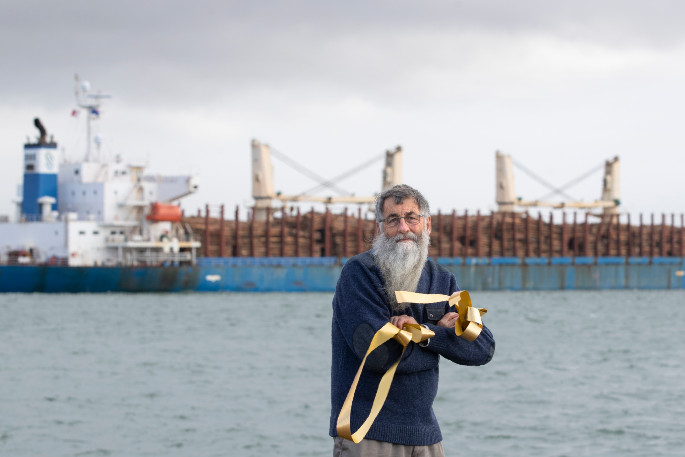Stuck at sea with nowhere to go is the reality for more than 150,000 international seafarers due to global border restrictions.
United Seafarer's Mission Tauranga manager Murray Smith has witnessed the impact this is having on cargo vessel crew members, first-hand, when they arrive at the Port of Tauranga.
Many seafarers have overworked their contracts by several months, and some have been at sea for up to a year due to COVID-19. As well as being denied shore leave in most of the countries they visit, many seafarers can't even return to their home countries.
Murray says the mental health of the arriving crews isn't just waning – it's plummeting.
'Suicide rates among seafarers was already alarming, and COVID-19 has made the situation much worse. It's isolating work as it is, and now they have no support with no end date in sight,” says Murray.
'Their welfare is in crisis. People need to know about what they're going through – they're an unseen casualty of COVID-19.”
For the first eight days of Alert Level 1, New Zealand granted shore leave to seafarers who hadn't been in another country for 14 days. This was revoked when two UK travellers, who tested positive for COVID-19, drove from Auckland to Wellington.
Now, seafarers must be isolated at sea for 28 days before being allowed shore leave, so it's seldom granted.
'You'd have to be travelling from as far as Siberia for that to be realistic. What's more, every time someone new enters the ship, such as a pilot or ship agent wearing PPE, the clock restarts.”
Each port has a system in place to get basic food on board. But, with no shore leave, not all crew members have been able to access other necessities, such as toothpaste.
'Before COVID-19, we would drive crews to Bayfair during their shore leave, so they could buy things like toothpaste, shampoo and fresh fruit – simple things.
'Crews have resorted to brushing their teeth with salt.
'Shore leave is also when they're able to use the internet to call their families, as most vessels have no Wi-Fi on-board. They haven't even been able to contact their loved ones during this very difficult time.”
United Seafarer's Mission Tauranga are a charitable organisation, who are helping where they can within the restrictions.
Since lockdown ended, the organisation has set up 50 vessels with Wi-Fi.
They are figuring out ways to get necessary toiletries on board and provide mental health support where possible.
'A ship… arrived in June. They weren't granted shore leave, despite just returning from Honiara in the Solomon Islands, which at the time had no cases of COVID-19. They stopped in New Caledonia and Brisbane 21 days prior to this, but had not left their vessel.
'The crew needed support, as the captain of their sister ship, who they worked very closely with, had recently been found dead in his cabin off the coast of Australia. He was overdue for home leave.”
The captain's cause of death has not yet been confirmed. Murray doesn't know whether his body made it home to the Philippines.
'I worked with port security and the necessary health officials, and we managed to get our Catholic chaplain on board to hold a service for the late captain.”
Time and again, crews arriving in Tauranga are left desperate and disheartened when they're told that they don't qualify for shore leave. Murray is the bearer of the bad news.
'This scenario is repeated for nearly every vessel coming into the port.
'We need the resetting of the clock dropped – it would make all the difference to the welfare of the crews.
'The general public are not at risk from seafarers and should be glad to see them having a break onshore, as it means they're still operating and bringing us products from countries like China. If the crisis continues, there are numbers of large retailers whose shelves will become emptier than they already are.”
While the situation is grim, there is hope on the horizon. Meetings with working groups and New Zealand ports are underway to try to establish managed isolation facilities for seafarers, where they can receive support.
While a timeline for this hasn't been set yet, Murray remains optimistic.
'A good thing to come out of this is people becoming more aware of what seafarers go through, and how important they are to the economy.
'Hopefully this will lead to long-term change.”

